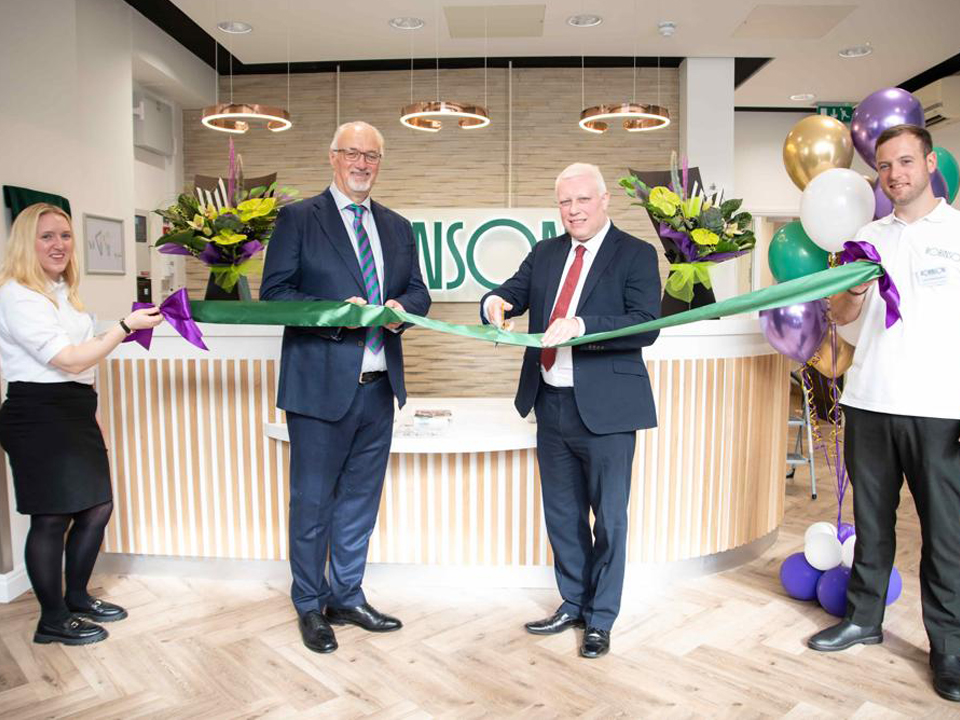
Business Premises: What Do You Need to Think About?
Opening your own store/salon/café/office/workshop? There’s lots to think about when you’re taking on premises. So before you sign anything, take a look at this checklist.
Equipment
When you take on the lease for new premises, you may find that some equipment is included/available in the premises e.g. fridges/freezers/display cabinets. That’s especially likely where the equipment is fixed and difficult to move from location to location, such as a fish and chip shop range or garage lifting equipment. It’s important to be clear about the equipment and whether it is included in your lease. You need to ask questions/check details…
Checklist:
• Who owns the equipment?
• If it’s the landlord, does your rent include the equipment? If not, how much extra will it cost?
• Is it rented equipment that you will be taking on a contract for?
• Is it being gifted to you as the new leaseholder? If it’s you, is it paid for? If not, how much will you have to pay for it?
• Is the equipment compliant? That is, is it safe to use, PAT tested and well maintained? If it isn’t, you’ll need to check the cost of bringing it up to standard
• If you don’t want the equipment, have you got the right to sell or dispose of it?
• Do you need to install additional equipment, and do you need permission for it? You might, for example, run into planning or cost issues if you need to install a new extraction system in premises with residential units above.
Utilities
It’s more important than ever to be in control of your energy costs. Before you sign the lease, ask to see example bills for the previous occupier. You should also confirm that your premises are on a separate meter to the rest of the building—you don’t want to find yourself paying electricity/water/broadband for the flat above your shop! If you’re using our Blackpool office space, your bills will be included.
Checklist
• Ask to see previous bills
• Confirm the premises are independent of any flats above (in terms of utilities and access)
• Check whether you are free to change suppliers
Business Rates
Every business that operates from commercial premises needs to pay business rates (the business equivalent of council tax). The rate is set by the government and based on the ‘rateable value’ (RV) of your building. The money is collected by your local council.
Where a property is your only business premises and its RV is £12,000 or less, you will be eligible for Small Business Rate Relief (SBRR) and pay nothing towards business rates. Where the property is not your only business premises, or where your RV* is above £12,000 but below £15,000, you may still receive some SBRR. (*Please note, that the RV threshold can be adjusted by the Government.)
Checklist
• Check the business rates for your premises, we can help you to find this
• Before you sign the lease, check eligibility for SBRR
• Once you have signed the lease apply for SBRR with the local authority.
Understanding your lease
Leases vary. Some will include repairs and maintenance; some won’t. In managed office space like that provided by Blackpool Unlimited, for example, all repairs and maintenance are included. In other premises, things can be rather more basic. There’s nothing essentially wrong with a lease that includes nothing but your right to occupy a building, but it’s important to know what is and isn’t included before you move in.
You’ll also want to know how long your landlord is expecting the lease to last (so you don’t rent premises that are only going to be available for a limited period) and confirm whether there’s a ‘break clause’ that could help you walk away from the lease on a set date if things aren’t working out.
Checklist
• Is your lease a full repair lease (that is, are you responsible for all repairs/maintenance – once you have signed it)?
• If it is not a full repair lease ask who is responsible for building maintenance and how will it work – equal split of costs?
• The electrics
• Heating systems
• Safety systems
• Any exiting IT systems
• Any existing security systems
• Ask to see paperwork for any recent updates, repairs or servicing – to help spot any potential issues with ‘old’ kit?
• In particular, ask who is responsible for windows and any leaks, damage caused accidentally or through vandalism. It’s often a grey area with landlords and insurers.
• Ask how long your landlord is expecting the lease to last
• Confirm if there’s a break clause available
Insurances
If the landlord owns the entire building and the building includes your premises together with others (perhaps the unit next door or the flats above) you’ll probably be asked to contribute to the building insurance. It’s important to know how much it will be and what it covers will be in advance of moving in.
Other insurances, to cover stock, equipment, professional indemnity, employers, public liability and more, will be your responsibility.
Checklist
• Understand your building insurance:
• How much do you pay?
• How often do you pay?
• Is it included in your rent?
• Arrange other business insurances separately
Bonds, advance rent, legal fees and price increases
Your monthly rent may not be the only cost you have to pay your landlord for your premises, especially at the outset of the lease. They may require a bond (which protects the landlord should you default). Alternatively they may ask for an up-front sum which could amount to several months’ rent.
On top of this, they might expect you to pay their legal fees, and it’s often the case that you won’t find out about this until late in the process. Finally, you’ll want to know about rent reviews (that is, how often the landlord can put your rent up).
If you can - find out all this information before you sign your lease, and you’ll want it in writing (keep copies of all correspondence).
Also, knowing about the costs up front will help you accurately forecast for the business and possibly negotiate a better deal.
Checklist
• Is there a bond and/or other up-front lump sum required?
• Who is paying your landlord’s legal fees? If it’s you, how much will this be?
• How often are rent reviews?
• Confirm any increases will be put in writing
• Ask if you can offset some of the initial costs with a low rent or rent-free period
Change of use
Land and buildings sit in various ‘use classes’ e.g. residential, industrial units, retail etc. Always check with planning to make sure the building has the correct ‘use’ – if a change is needed there is an application fee and process (you’ll also need to get permission from the landlord – so finding properties that have already been used for the purpose you plan to use it for should make everything a little easier – e.g. if you are about to open a café, find a building that’s been a café in the past). If you are making structural changes to the building, or if you’re planning to erect new signage, you may also need approval from planning.
Checklist
• Check the use class of the premises you want to lease/buy – chat to us, let us help you
Fire safety
A fire risk assessment is a legal requirement for anyone responsible for a building that isn’t a private home.
This is your responsibility to undertake an assessment and keep all the records for reference.
Waste disposal
As a business, you’ll need to arrange for your rubbish to be taken by a commercial waste team.
Blackpool Council has its own commercial team – we can put you in touch.
Checklist
Arrange your waste disposal - we can put you in touch with the right people
Alcohol licence
Any individual or organisation that wants to sell or supply alcohol in England and Wales must have the appropriate licences – personal and premises.
Checklist
Find an approved course provider. There are fees to attend the courses and gain the certificates.
We can help make your new business (and your new premises) a success. We can help to make it all a bit easier. For support and advice, talk to us now.









